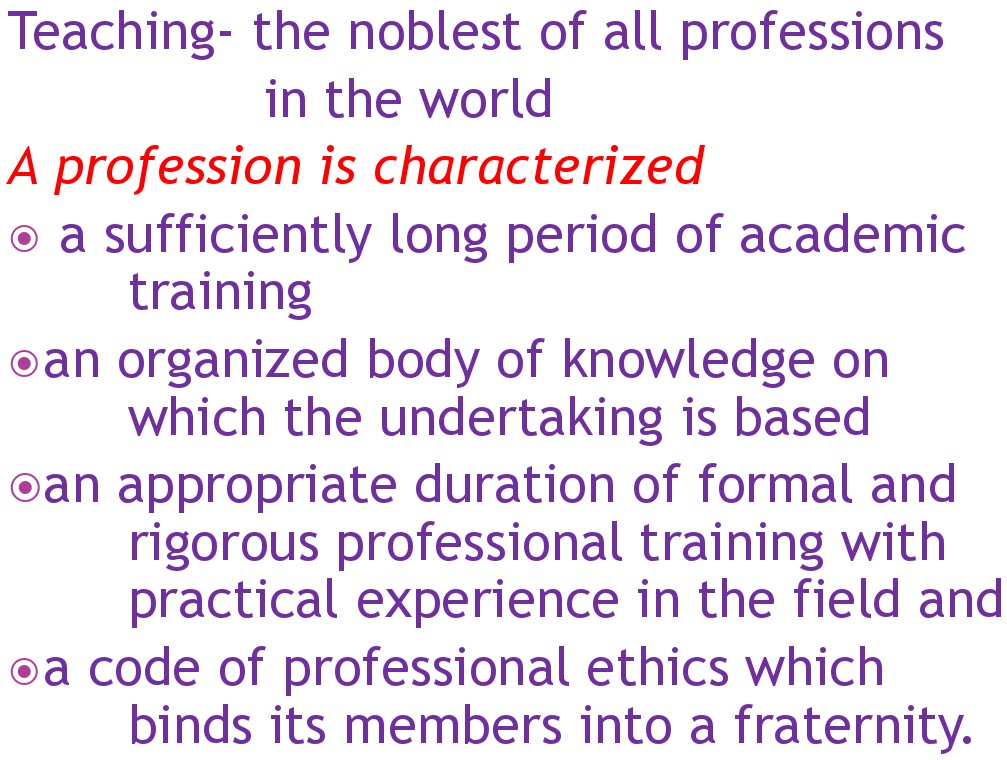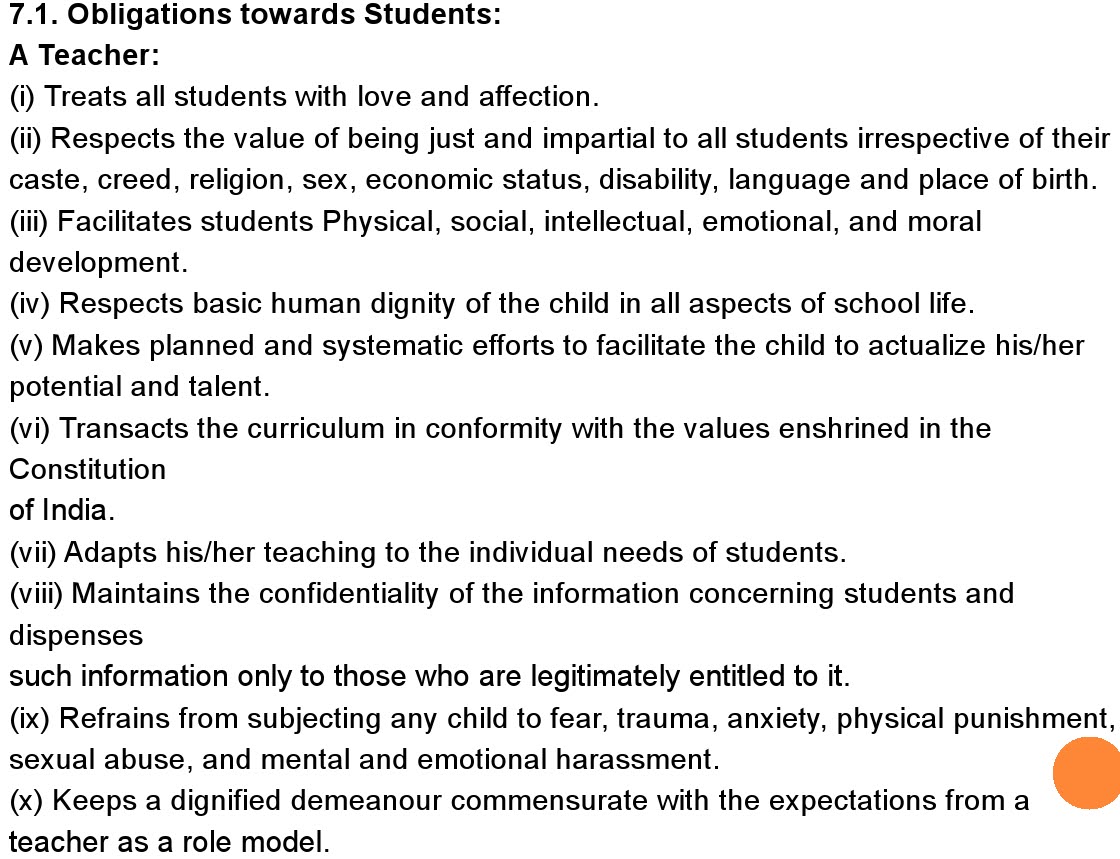Ethics of Teaching
Ethics
of Teaching in India: A Guide for 21st Century Educators
Introduction to the Ethics
of Teaching in India
Teaching is a noble
profession, but it is also one that comes with a great deal of responsibility.
As educators, we are entrusted with shaping the future of our students, and we
must do so in an ethical manner. In India, the ethics of teaching have come
under scrutiny in recent years, as teachers face challenges such as low pay,
overworked schedules, and limited resources. In this article, we will explore
the ethics of teaching in India and how educators can uphold these values in
their daily work.
Teaching is not just about
imparting knowledge to students, but also about creating responsible, honest,
and ethical individuals. The ethics of teaching go beyond the classroom,
affecting the entire society. In India, teachers have an even greater
responsibility as they shape the future of the country. The education system in
India is one of the largest in the world, with over 1.5 million teachers and
260 million students. In this article, we will discuss the ethics of teaching
in India, the challenges faced by teachers, and the role they play in shaping
the future of the country.
The importance of ethics in teaching
Ethics are the principles
and values that guide our behavior, and they are an essential component of any
profession, including teaching. In education, ethics are critical to building
trust between teachers and students, fostering a positive learning environment,
and ensuring that students receive a high-quality education.
Ethics play a vital role in
teaching. Teachers must demonstrate ethical behavior, promote moral values, and
lead by example. They must create a safe, supportive, and inclusive learning
environment where students can feel free to express their thoughts and ideas.
Ethical teachers also promote equality, respect, and inclusivity in the
classroom. They do not discriminate based on race, religion, gender, or
socio-economic status.
Challenges faced by teachers in maintaining
ethical standards
Despite the importance of
ethics in teaching, teachers in India face many challenges in maintaining
ethical standards. These challenges include a lack of resources, inadequate
training, and the pressure to meet performance targets. Some teachers may also
be subject to political or social pressure, which can compromise their ethics
and integrity. Additionally, some teachers may struggle with balancing the
demands of their professional and personal lives, which can also impact their
ethical behavior.
Despite the importance of
ethics in teaching, there are a number of challenges that educators face in
India that can make it difficult to uphold these values. Some of the most
common ethical challenges faced by teachers in India include:
-Low Pay: Many teachers in India are
paid low salaries, which can make it difficult for them to make ends meet. This
can lead to ethical dilemmas, such as teachers accepting bribes or cutting
corners in order to supplement their income.
-Overworked Schedules: Many teachers in
India are expected to work long hours, often without adequate compensation.
This can lead to burnout and a loss of focus, which can impact their ability to
provide a high-quality education.
-Limited Resources: Teachers in India
often lack access to the resources they need to effectively educate their
students. This can include everything from textbooks and educational materials
to basic classroom supplies like chalk and markers.
The role of teacher training in promoting
ethical behavior
Teacher training is
essential in promoting ethical behavior among teachers. The National Council of
Teacher Education (NCTE) provides guidelines for teacher education and training
in India. These guidelines emphasize the importance of ethics, values, and
morality in teaching. However, the implementation of these guidelines is not
always consistent, leading to a lack of uniformity in the training of teachers
across the country.
Despite the challenges that
teachers in India face, it is important that they fulfill their ethical
responsibilities to their students. Some of the most important ethical
responsibilities of teachers in India include:
-Providing a Safe and Supportive Learning Environment: Teachers have a responsibility to create a learning
environment that is safe and supportive for all students. This includes
addressing any bullying or harassment that may occur in the classroom and
working to create an inclusive atmosphere that values diversity and individuality.
-Fostering Student Success:
Teachers have a responsibility to help their students succeed by providing them
with the skills and knowledge they need to succeed in life. This includes
setting high standards for academic achievement, as well as helping students
develop critical thinking, problem-solving, and decision-making skills.
-Maintaining
Professionalism: Teachers have a responsibility to maintain professional
conduct at all times, both inside and outside of the classroom. This includes
treating students, colleagues, and parents with respect, avoiding conflicts of
interest, and upholding the standards of the profession.
The responsibility of schools and educational
institutions
Schools and educational
institutions have a crucial role to play in promoting ethical behavior among
teachers. They can provide training and resources to help teachers maintain
ethical standards and create a positive learning environment. Additionally,
schools and educational institutions can develop policies and procedures to
address ethical issues that may arise in the classroom.
The role of the government in promoting ethical
behavior in teaching
The government also has a
role to play in promoting ethical behavior in teaching. It can provide
financial and other resources to schools and educational institutions to help
them develop teacher training programs and promote ethical standards.
Additionally, the government can create laws and regulations to enforce ethical
standards and hold teachers accountable for their behavior.
Best Practices for Upholding Ethics in Teaching
To ensure that teachers in
India are able to uphold the ethics of their profession, it is important that
they adopt best practices that promote ethical behavior. Some of the most
effective strategies for promoting ethical behavior in teaching include:
-Professional Development:
Teachers should engage in ongoing professional development opportunities to
stay up-to-date on the latest best practices and ethical considerations in
education.
-Reflective Practice: Teachers should take
time to reflect on their own actions and decisions, and make adjustments as
needed to ensure that they are acting in an ethical manner.
-Building Relationships with Students:
Teachers should make an effort to build strong relationships with their
students, which can help to create a positive and supportive learning
Conclusion
In conclusion, the ethics of
teaching in India play a critical role in shaping the future of the country.
Teachers have a responsibility to demonstrate ethical behavior, promote moral
values, and create a safe and inclusive learning environment for students.
However, they face many challenges in maintaining ethical standards, including
a lack of resources, inadequate training, and political pressure. To promote
ethical behavior among teachers, schools and educational institutions, as well
as the government, must provide support and resources to help teachers maintain
ethical standards and create positive learning environments.
























































